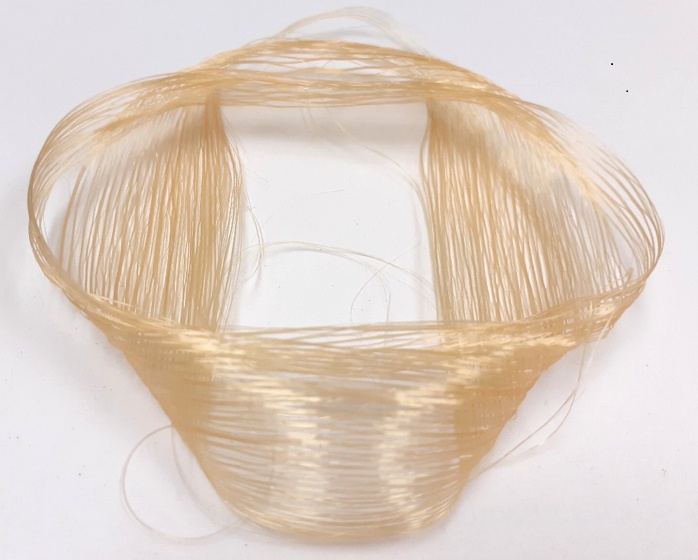
Researchers at Cranfield University are working to develop a greener way to manufacture textiles for clothing using biomass derived from crop waste.
The new process, which is being worked with researchers from York University, uses low environmental impact solvents to dissolve cellulose produced by bacteria from crop and household waste, such as food scraps and kitchen roll.
This creates a viscous honey-like solution which can then be spun into fibres to make eco-textiles for sustainable fashion.
The clothing sector is worth £32 billion to the UK economy annually and every year around a million tonnes of clothes are thrown away. The environmental impact of the sector could be reduced by using more renewable and biodegradable materials such as cellulose.
 Dr Sameer Rahatekar, Research Lecturer in the Manufacturing, Enhanced Composites & Structures Centre at Cranfield University, said: “The world’s clothing industry is responsible for 10 percent of all greenhouse gas emissions – more than flights and shipping – and 20 percent of all wastewater.
Dr Sameer Rahatekar, Research Lecturer in the Manufacturing, Enhanced Composites & Structures Centre at Cranfield University, said: “The world’s clothing industry is responsible for 10 percent of all greenhouse gas emissions – more than flights and shipping – and 20 percent of all wastewater.
"Our work with colleagues at the University of York offers a low environmental impact solution that could transform how we make textiles and reduce the amount of waste that goes into landfill.”
Cellulose is a structure found in plants and wood but isn’t easy to extract without the use of toxic chemicals such as sulphuric acid and carbon disulphide, which are currently used in manufacturing viscose/rayon cellulose textiles.
The manufacturing process developed at Cranfield uses less aggressive solvents which will have a significantly lower environmental impact compared to the viscose/rayon cellulose textiles.
The project has received UKRI funding from the Textile Circularity Centre, a Royal College of Art led consortium.
The full research paper – Manufacturing & characterization of regenerated cellulose/curcumin-based sustainable composites fibers spun from environmentally benign solvents – can be read here.














